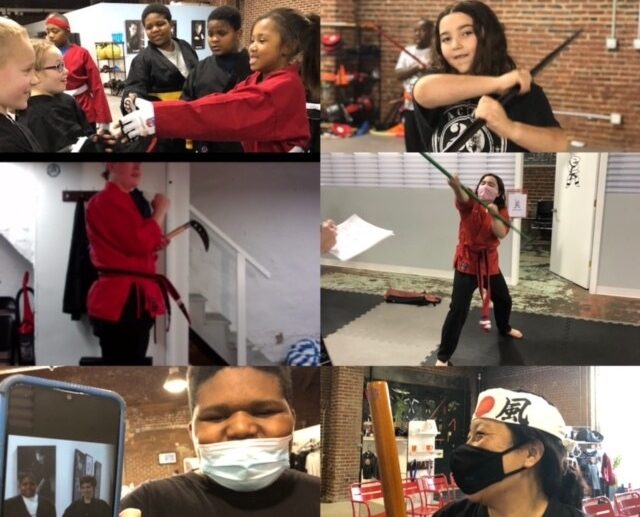
What style is best for your child? What if the kid likes to fight? What if they’re competitive? If they’re bullied? For self-defense? If they have ADD/ADHD? If they hit their siblings? If they need more exercise? If they love ninja turtles or Bruce Lee?
The answer to these is simple: Style doesn’t matter. Go to the one that brings out the best character traits in your kids. Join the one that you are willing to go to at least twice a week. Judo, shotokan, Jui Jitsu, Kenpo. They’re all good depending on what interests you and how well it’s being taught.
It’s not the style or the length of time it takes to get a Black Belt. It’s which one brings out the best qualities in your kid. Think of it like a school: there’s no one size fits all school and no major that’s right for everyone. What’s best? That could be community college or Ivy League/ engineering or biology. Martial arts isn’t a lifetime commitment for everyone but it does take time to see improvement in important life skills like focus and discipline (months not 6 weeks). It works for a lot of people.
That being said, here are some questions to ask before you commit to a martial arts program.
- Quality of flooring/equipment: Thick matting helps protect knees and joints from repeated jumps and falls in martial arts training. Look for professional equipment.
- Ongoing Instructor training: An instructor can have a lot of martial arts experience, but it doesn’t make them good teachers. Choose a martial arts academy where the instructors are certified and go through routine training to maintain and improve their skills.
- Budget: There is a range in prices for martial arts training. Some questions to ask when budgeting: How many classes can a student take? Are there fees for new belts? Are there fees for leadership training? Are there additional costs for competition and equipment?
Here is a general outline of price points, though not all schools will fit into this formula. You have to actually check a place out to see if it’s right for you.
- The low-cost community programs tend to be a casual activity of kicking and punching, taught by part-time teachers. This is best for people who want an “activity.”
- If you want to use martial arts to develop life skills and reach goals, you should seek out a professional school with full-time instructors. Ask if character development is part of the curriculum.
- The highest-cost martial arts programs are often run by experienced big names with the goal of creating competitive students. If the student is a little older, self-motivated and has the goal of competing, this kind of martial arts school will likely be right for you.
- Location: Is the school clean? Is it convenient for you to attend? If not, are there alternative classes available on Zoom or online that will work with your schedule? Are there suitable Covid practices in place.
- Family atmosphere: Do you feel comfortable walking into the karate school? Are the instructors welcoming and friendly? Do they know your name and your goals?
- Kid-specific goals: Is there enough of a physical challenge in class to give your kid a challenge without making the child feel defeated? Do the instructors have experience working with kids who have a diagnosis? Do they have experience teaching specific ages? Does the class structure create a positive atmosphere for kids with ADD, autism, OCD or another diagnoses?
Would following these guidelines steer most kids to Action Karate? Hopefully. But definitely not all. That’s why there are so many martial arts schools. If you didn’t succeed at finding one in your first effort, try again until you find the best fit.
No matter what style you choose, always be open to learning more. I grew up doing karate, but for a time I moved to South Florida. I checked out a couple of karate schools and didn’t find one that fit my interest. Then I found boxing. I liked the fighting, the atmosphere, the rawness, the grit. I was there 10 hours a week. I still love boxing, but I’m a mom now and recommitted to training and teaching karate full-time. My kids train at my karate school. I share this to show that training in different styles, at the same time or at different stages in your life, is a good thing. I’m able to apply my boxing knowledge to my karate training.
Even though my karate school is based in Kenpo, we teach and train in multiple styles to add to our knowledge. Being open to learning as much as you can makes you that much better of a martial artist.
